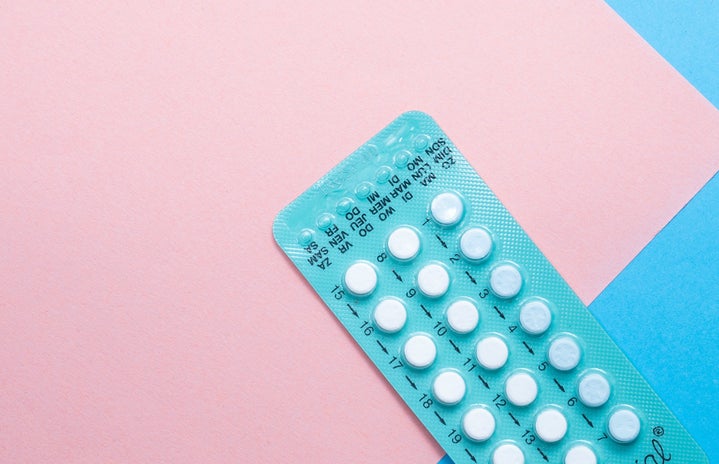Disclaimer: This topic and the conversations addressed throughout the article are my personal experiences and opinions, and I am in no way offering medical or professional advice.
Sophomore year of high school, my acne was at an all-time high and I had no idea how to get rid of it. I tried so many facial washes and even sought a dermatologist when nothing else worked. She gave me a multitude of topical ointments to apply to my face. Yet, instead of fixing my problem, the creams and other topical products burned my face and lead to peeling. Instead of feeling better about how I looked, I felt worse- and I felt defeated.
I had never suffered from acne before and suddenly, it was everywhere. I felt ugly and disgusting and would do almost anything- besides Accutane- to help my issue. Finally, I was suggested birth control.
Talking with my doctor, we found a birth control that would help get rid of my acne; and, over time, it worked. However, before I went on birth control, I didn’t know many of the side effects that came with it. The only thing I did know was that some birth control can make you gain weight, says Planned Parenthood, and I knew that I didn’t want that, but I never stopped to ask why certain brands of birth control can cause this.
By my sophomore year of college, four years later, my skin was the clearest it had ever been. However, I started to fall behind on taking my birth control. The thought of taking it made me sick, not physically, but every time I thought about taking my birth control, my stomach would turn, and sometimes my body would physically reject swallowing my pill. And full transparency, some days I would just skip because I could not find the desire or courage to take it.
So around Thanksgiving of 2022, I made somewhat of an impulsive decision to stop taking my birth control. Although it was a rash decision, I decided I would listen to my body, and do what felt best for me. However, little did I know that things wouldn’t stay the same. By December, I started to experience irregular periods and I started to fear that I was infertile. I also experienced an immense amount of hair loss. My acne also started to appear again and was extremely painful. I was scared and worried that I made the wrong decision and I suddenly felt very uneducated about my own body- and the effects hormonal birth control had on it.
So, I started to immerse myself in articles and podcasts from a professional standpoint and firsthand experiences. From this, I realized that I was not alone, and that these side effects are experienced by many women who stop taking hormonal birth control.
I listened to a podcast on the history of birth control: how it came about and why. In this episode, a co-host, Grace Emily Stark, talks about what she found during the research she conducted for the Novak Journalism Fellowship in 2019. In this podcast, they address how birth control was created, tested, and passed by the FDA. The truth is birth control was an accident. When researchers were searching for a way to make women fetal, they found a way to give women all the symptoms of pregnancy, such as: gaining weight, breast sizes going up, tender breasts, increase in appetite, and more without getting pregnant. They tested on women in rehabilitation centers, women from minority groups, and even lab assistants to the doctors creating this contraceptive. When their testing was complete, they secured 138 participants. Due to this low number of participants, they made the executive decision to count the number of cycles instead of participants.
By the time I finished this podcast, I was left feeling fed up with our government and how normalized hormonal birth control seemed to be. More so, I started to realize how common it is for women to be offered birth control as a band-aid fix for other issues, such as irregular periods and acne.
I was mad and felt betrayed and uneducated. So, I continued to dig for more information.
While researching, I also came across another podcast that talks about all types of concepts related to hormonal birth control. In this podcast, the host interviews a “naturopathic doctor, women’s health expert, and bestselling author of Beyond the Pill, Dr. Jolene Brighten.” Dr. Jolene Brighten “talks about the many side effects that hormonal birth control can cause in a woman’s body, how this can impact long-term health and fertility, and what women can do to balance their hormones, recover their health, and conceive successfully after birth control.”
I absolutely loved this podcast and felt so empowered and more educated by the end of it. Since getting off birth control; educating myself on the effects; and finding how to reconnect with my body, period, and natural hormonal balance, I feel more in tune with my body and period cycle. Overall, I am not only grateful that I made the switch, but I am so glad that I took this opportunity to educate myself on my body and what I am putting into it.


